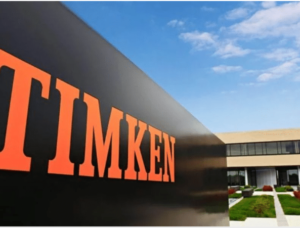
In the era of industrial automation, where precision, efficiency, and reliability are paramount, every component choice influences the seamless functioning of complex systems. Bearings, serving as the linchpin of motion control and reduced friction, hold a critical role in this landscape. Among the notable contenders, FAG and TIMKEN have gained prominence for providing bearings tailored to industrial automation. This article delves into the challenges of selecting bearings for industrial automation and conducts a comparative analysis of FAG and TIMKEN bearings, exploring their suitability, innovations, and contributions to this rapidly evolving field.
Challenges in Bearing Selection for Industrial Automation:
Precision and Accuracy: Industrial automation systems demand impeccable precision and accuracy in motion control. Bearings must be capable of maintaining consistent performance under varying speeds, loads, and directions.
High-Speed Operation: Many automated systems require high-speed movements, imposing stringent requirements on bearings’ ability to minimize friction, manage heat, and ensure stable operation.
Minimal Downtime: Downtime in automated processes translates to productivity loss. Bearings must exhibit robustness and durability to reduce maintenance frequency and unplanned stoppages.
Adaptability to Environments: Industrial automation environments can range from clean rooms to harsh manufacturing setups. Bearings must withstand contaminants, temperature variations, and adverse conditions.
Integration with IoT: The integration of the Internet of Things (IoT) demands bearings with sensing capabilities to facilitate real-time monitoring, predictive maintenance, and data-driven decision-making.
FAG Bearings in Industrial Automation:
FAG, with its rich heritage in precision engineering since 1883, aligns well with the demands of industrial automation. Their bearings’ precision craftsmanship, minimal tolerances, and low friction properties make them suitable for applications requiring high levels of precision and reduced energy loss. In industrial automation, FAG bearings excel in situations where precision, accuracy, and seamless motion control are vital.
Key Advantages of FAG Bearings in Industrial Automation:
Precision Engineering: The essence of FAG bearings lies in precision craftsmanship, ensuring consistent and accurate motion control crucial for industrial automation.
Low Friction and Efficiency: FAG bearings’ low friction properties contribute to efficient operation and reduced heat generation, which is crucial for high-speed automation.
Reliable Load Handling: In automation systems, where varying loads are common, FAG bearings offer reliability in load distribution and resistance to wear.
Innovative Solutions: FAG’s commitment to innovation is reflected in the integration of advanced materials, coatings, and sensing capabilities to meet the challenges of industrial automation.
TIMKEN Bearings in Industrial Automation:
TIMKEN’s legacy of durability and strength, dating back to 1899, resonates with the robust requirements of industrial automation. The tapered roller design of TIMKEN bearings facilitates efficient load distribution and reduced friction, ensuring stable operation under demanding conditions. In industrial automation, TIMKEN bearings find their niche in applications requiring enduring resilience and reliable performance.
Key Advantages of TIMKEN Bearings in Industrial Automation:
Tapered Roller Excellence: TIMKEN’s expertise in the tapered roller design ensures efficient load distribution, critical for precise motion control and operational stability.
Durability Under Stress: Automation systems often subject bearings to dynamic forces and heavy loads. TIMKEN bearings excel in enduring such conditions.
Integrated Solutions: TIMKEN’s comprehensive bearing solutions, including seals and lubrication, cater to the diverse needs of industrial automation.
Predictive Maintenance: TIMKEN’s advancements in predictive maintenance align with the IoT era, facilitating proactive maintenance to minimize downtime.
Comparative Analysis and Application:
Both FAG and TIMKEN bearings offer strengths that address the challenges of industrial automation. FAG’s precision engineering suits applications demanding precision and accuracy, while TIMKEN’s durable design is ideal for enduring harsh conditions. The choice between the two depends on the specific requirements of the automation system, including speed, load, and environment.
Conclusion:
In the realm of industrial automation, bearing selection plays a pivotal role in determining the success of complex systems. Both FAG and TIMKEN bring their unique attributes to the table, contributing to the seamless motion and reliability that automation demands. The selection process must be meticulous, evaluating factors like precision, durability, and integration with the evolving IoT landscape. Whether it’s FAG’s precision or TIMKEN’s durability, the world of industrial automation benefits from the dedicated engineering and innovation that each brand brings to propel this transformative field forward.
We support more information about Bearings. you can visit https://cmtgbearing.com. or email us info@cmtgbearing.com.


